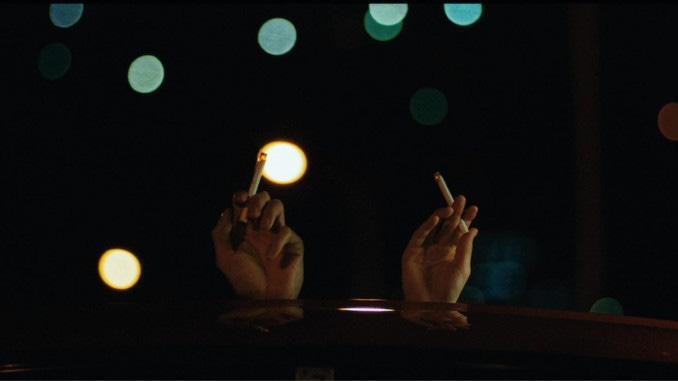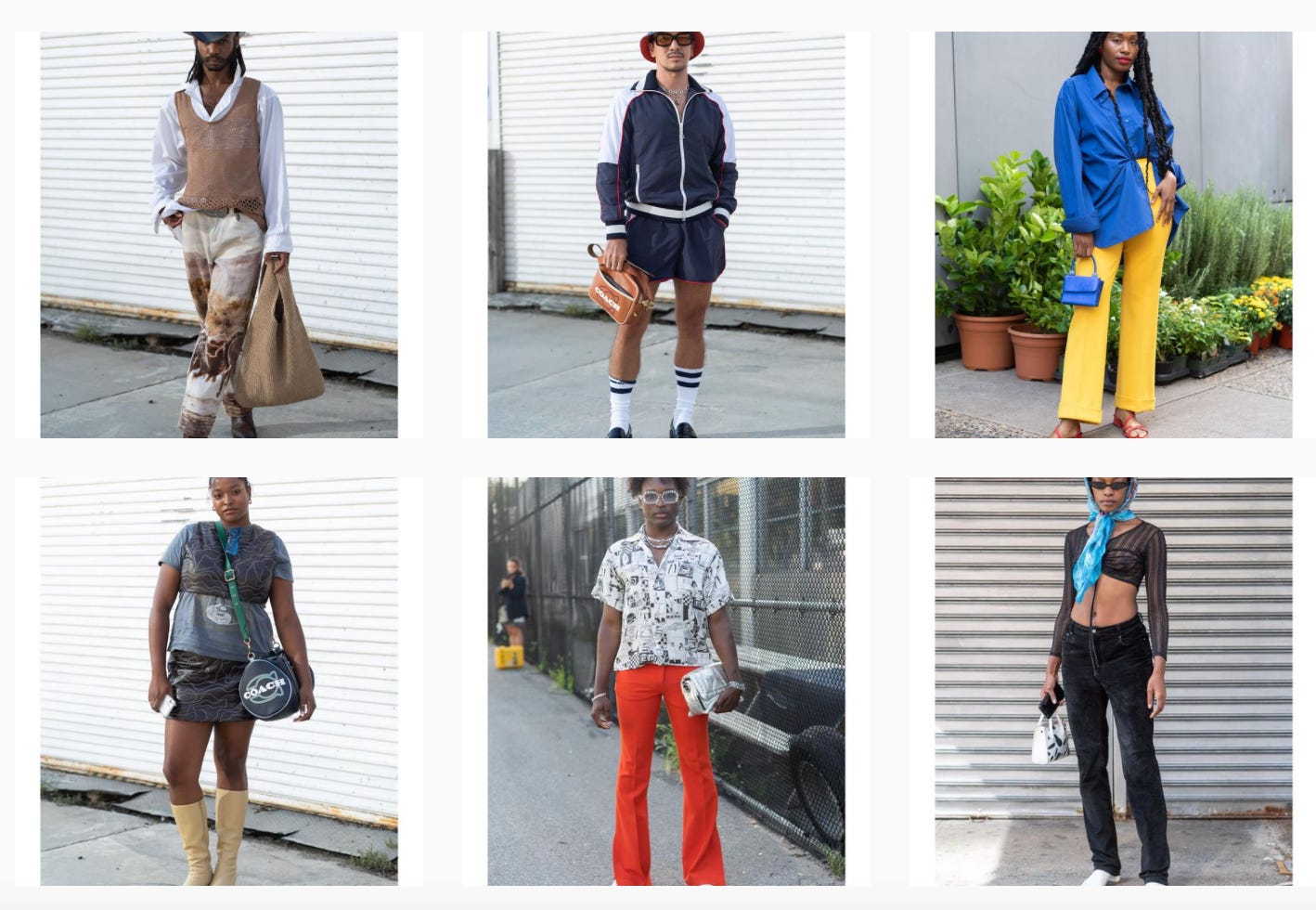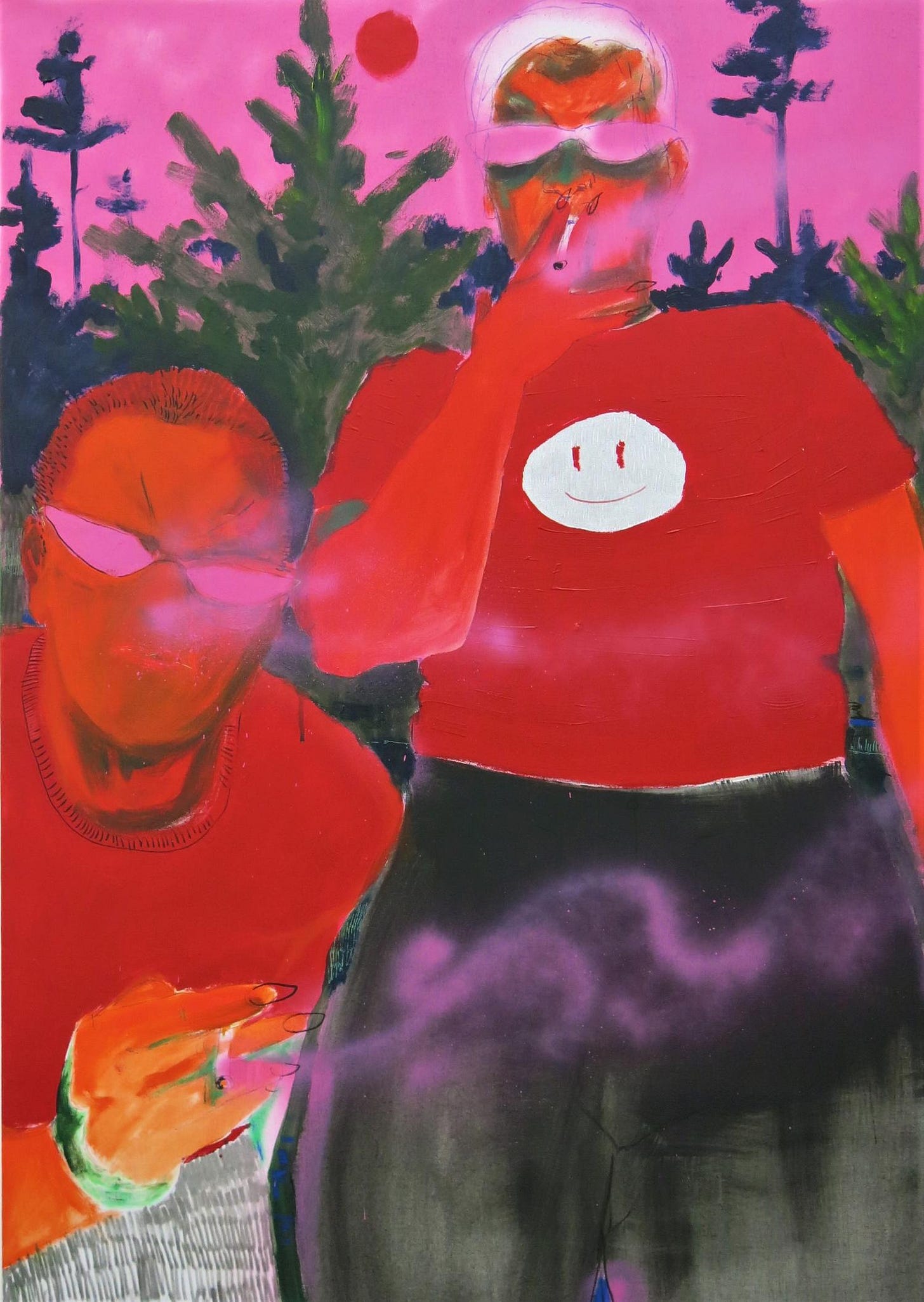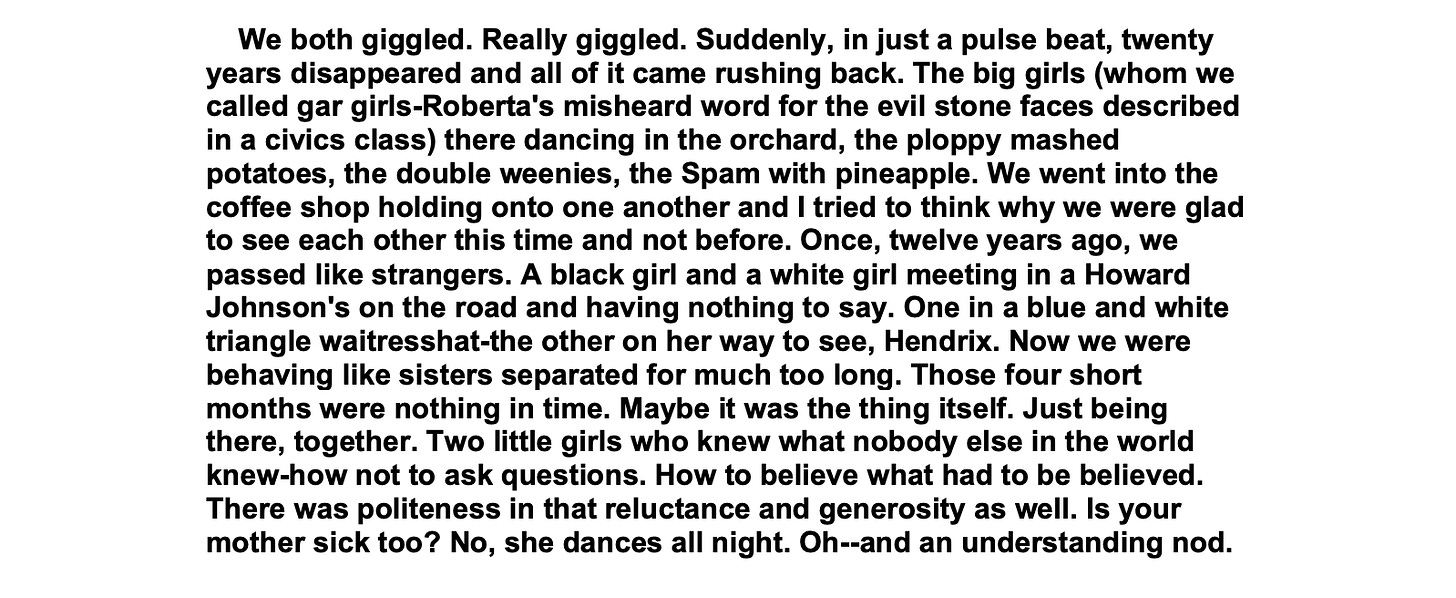Having been cooped up in the house this past week with nothing to do but coat my gullet with benzocaine and wait it out, I’ve looked to ways to feed my boredom. Coffee, wine, dairy, and chocolate are out of the question, so I’ve been eating art, just huffing it up, even the longform stuff I haven’t touched since I was a teen, and I’m starting to experience some symptoms.
Saturated senses syndrome (SSS, just made it up) is when you have consumed so much media, taken in so many images, processed so much information in a compressed amount of time that you start seeing connections between all of them, degrees of separation narrowing, words you just learned starting to appear everywhere (see: plangent, adj., [of a sound] loud, reverberating, and often melancholy). Closing your eyes looks like a thumb pressed into the waxy rings of the stump of an oak tree, rippling into gasoline puddles of sapphire-ultraviolet, you are inside of yourself, this is what you look like inside, you must lay down on the floor in silence before you start contemplating how nostalgia might make its way into the aesthetic of the metaverse, which will ultimately be another tool of fascism cloaked in the language of free expression (really the free market), and how that could also be a way to contextualize the character of Che Diaz, who just might be a fascist tool themselves. Just to see if you can make it work, for funzies. Oh right, there’s already a term for SSS. Galaxy brain. 😎
Cigarettes, duly out of the question, are beckoning to me from around every corner. Carrie (our friend Carrie) is smoking again, in pink elbow-length gloves, that ingenious b, and the main characters in Drive My Car, and the mom chainsmoking in Crossroads, and this influx of young painters influenced by Philip Guston, and then this single-serving silver bullet, talk about ingenious.
Apples, too. And red. Red, red, red. Red for luck in the Lunar New Year, and the way in French pomme de terre plops a bright red apple into the dirt of the brain, pomme d’amour fills a farm wagon with mylar hearts. Apple of earth, apple of love, Apple of Big. I literally think about Sex and the City every other hour, like an Amtrak schedule. Please help me. And just like that …
I’m feeling all better. Allow me to administer your special lozenges.
:: :: : :: :: : : : :: :: : :: : :: :: ::: :: : ::::: : ::: : :: : :: : : :: : :: ::: :: : :: :: : : : :: :: : :: : :: :: ::: :: : ::::: : ::: : :: :
Drive My Car dir. Ryusuke Hamaguchi
What makes Drive My Car exceptional is that it’s entirely modern while remaining completely un-self-conscious. Instead of wringing meaning out of an aesthetic, or leaning on nostalgia, or putting Timothee Chalamet in it, director Ryusuke Hamaguchi is counting on the fact that you, the viewer, are interested in the story in the same way you are interested in anyone’s story, how anyone comes to be who they are.
The self is puzzle enough, but marriage and partnership present the challenge of having to figure out the puzzle of somebody else, and the frustration of never being able to quite get there, never being able to know someone, precisely, with absolute surety, inside-out. When that partnership is cut short by death, as it is with actor Yusuke and his TV executive wife Oto, who dies of a sudden brain hemorrhage, that puzzle becomes unbearable on top of being indecipherable. Haunted by infinite questions you didn’t know to ask, minute actions that could have changed the course of fate, if only you could grasp, if only you had turned the key a different way to figure it out.
Two years after Oto’s death, Yusuke shifts from stage actor playing Uncle Vanya to stage director of Uncle Vanya, employing a specific process for his cast that approximates the inhabiting of skin. Rehearsal consists of repeated readings of the script aloud, for weeks on end, the actors timing their lines like a metronome, in effect memorizing the rhythm of speech, inscribing it into their bodies. When it’s time to go onstage, their words are as natural as breathing.
And I haven’t even gotten to the silent Greek chorus of the long car ride, nor the car’s essential driver, Misaki, whose driving feels like floating through space. She has a rupture of her own to process, silently from the front seat, both she and Yusuke respecting the sanctity of the cab and sinking into the meditative state of the drive, which, in turn, we also can inhabit.
It’s something you want to suck on and savor, all three hours of it. Sexy and sad and contemplative as a long drive in a red car on the coast. Alone with yourself and the inarticulate parts of you that can only unspool and explain themselves in their own time.
In 2022 I’d like to step out in weirder outfits, which is one of the great riches of living in this city that should be seized and taken for a ride as much as possible. After reading Women in Clothes, which surveyed 600 women on style, clothes, and what it means to get dressed, I have a renewed sense of the importance of a good outfit. Style is cultivated, style is effortless, style is not for the weak. It gives one strength to see others try it on.
Whaddya lookin’ at?
Hm?
I thought so.
Recently released in hardcover, the only published short story by Toni Morrison is of course as whole and dazzling as a polished stone. Two girls, one black and one white, are taken from their mothers and institutionalized in foster care as small children. Twyla and Roberta run into each other over the years. One ends up rich, one poor. They find themselves on opposing sides of a protest: both women’s children are being bussed to the opposite side of town in order to integrate the schools. Across picket lines, one takes the side of mothers, the other of children.
Strife came to us that fall. At least that's what the paper called it. Strife. Racial strife. The word made me think of a bird-a big shrieking bird out of 1,000,000,000 B.C. Flapping its wings and cawing. Its eye with no lid always bearing down on you. All day it screeched and at night it slept on the rooftops. It woke you in the morning and from the Today show to the eleven o'clock news it kept you an awful company. I couldn't figure it out from one day to the next. I knew I was supposed to feel something strong, but I didn't know what, and James wasn't any help. Joseph was on the list of kids to be transferred from the junior high school to another one at some far-out-of-the-way place and I thought it was a good thing until I heard it was a bad thing. I mean I didn't know. All the schools seemed dumps tome, and the fact that one was nicer looking didn't hold much weight.
The sides are ever-blurred; don’t the rights of mothers and children coincide? Aren’t they doing the exact same thing? We never find out who is who, meaning who is white and who is black, in which case the phrase “who is who” also must be X-rayed and held up to the light. We know that their respective races are immaterial to at least one thing: a shared past as girls without homes. And in their hearts, a memory of an apple orchard that burns and pulsates like a red, damning brand as the particulars float away, become hazier with each passing year.
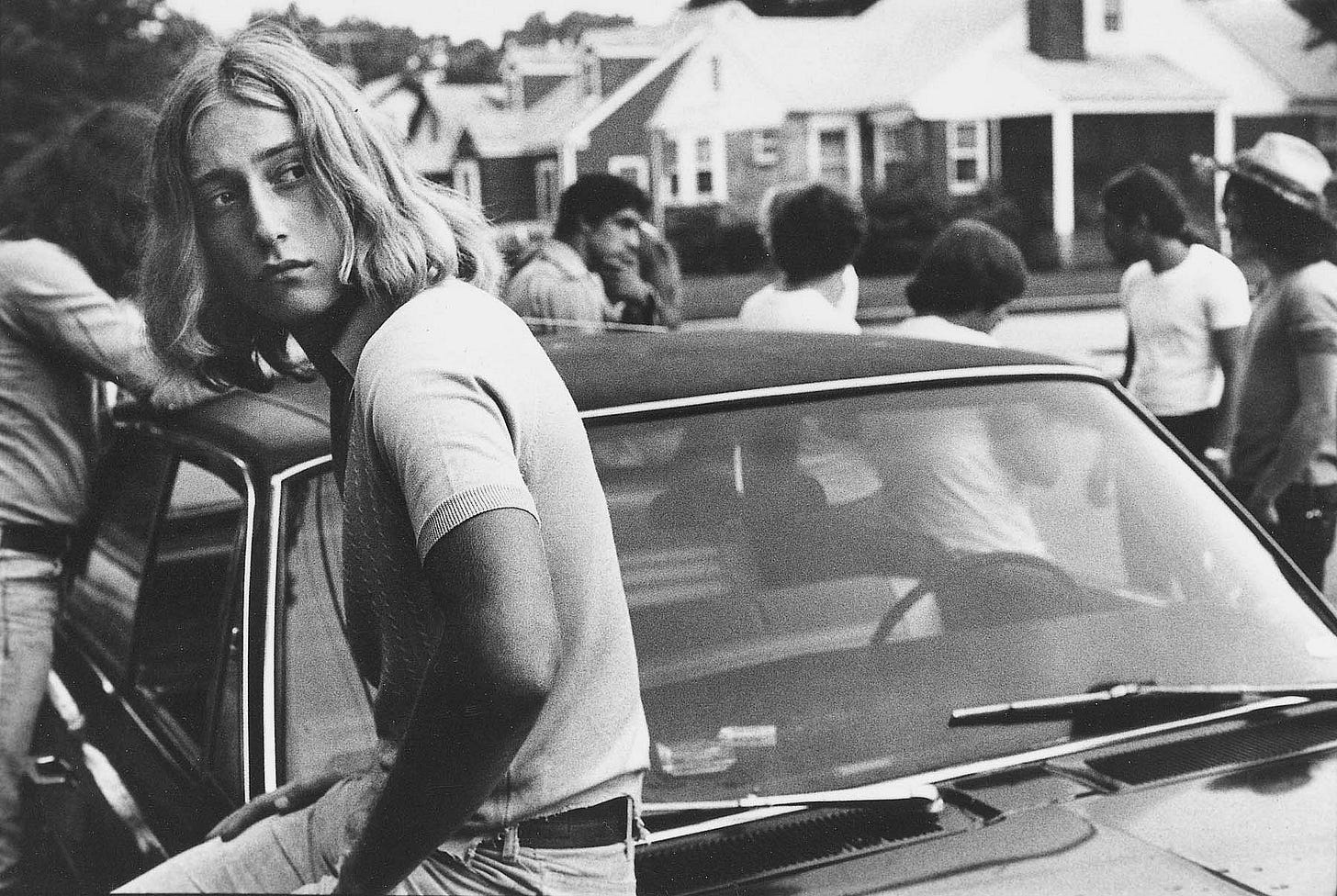
Crossroads by Jonathan Franzen
As a loner seventh grader I read a book called the Corrections which was the first time I realized that novels were actually pornography, interspersed with overwhelming honesty about the sadness of families, and therefore devil lived inside them and I loved it. Despite Franzen being an unfashionably white 50something year old man, he deserves his credit. This review by the also-frustratingly talented Molly Young, tempers the breathless praise with some very accurate criticisms. Still I devoured this book and its living, breathing, heinously copulating characters.
The most striking vignette, creating the most indelible portrait, is an early chapter on Hildebrandt family mother, Marion, who has a hellraiser of a past that gurgles up one fateful day of therapy and then just can’t stop erupting. Before she assumed the identity of Midwestern reverend’s neglected wife, she was a troubled eighteen year old girl newly landed in Los Angeles, a girl who has an affair with a married man who writes sonnets about her, who ends up having a psychotic break that sees her walking barefoot through the streets in the rain, convinced she has seen the devil himself up close.
Everywhere, red. She couldn’t get away from red. It was the color of his house. It was how he signaled that wherever she turned he was already there. Red bows, red ribbons. Red-striped candy canes. Shiny stars and crescent moons of metallic red cardboard. The red house. The red car. The red in the sink at her old rooming house. The red wagon. The red wagon. The red wagon. The red wagon. Evil had pursued her all her life, and now the world was exploding with the color of it, and nowhere was there refuge. […] Red annihilated her mind.
Marion is punk. Moms are punk. Franzen can stay.
You know, when the algorithm serves me obscure late 70s re-releases of basement-recorded sample EPs, what else is there to do but to bow my head and say thank you?
Now if you’ll excuse me, I am going to go smooth brain myself and see Jackass Forever.
Sneaking a cig in the maze at the apple orchard,
Delighter



